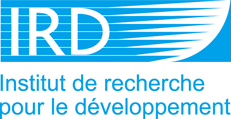Sabrina McCormick
Sabrina McCormick is a sociologist who studies the social dimensions of climate change impacts. Her work explores how medical, experiential, political and legal dimensions of heatwaves, emergent vector borne disease, sea level rise and extreme weather shape community-level responses. Dr. McCormick is the author of No Family
History: The Environmental Links to Breast Cancer, which is accompanied by her award-winning documentary film (www.nofamilyhistory.com), and Mobilizing Science: Movements, Participation and the Remaking of Knowledge. Dr. McCormick recently completed a Robert Wood Johnson Health and Society Scholars fellowship at the University of Pennsylvania. She is currently a Science & Technology Policy Fellow of the American Association for the Advancement of Science working in the NCEA Global Change Research Program at the Environmental Protection Agency. She is also Assistant Research Faculty at George Washington University School of Public Health and Health Services.
West Nile Virus: Social Challenges of Emergent Disease
Social problems plague effective address of emergent infectious disease linked to climate change. In this presentation, I explore how the emergence of West Nile Virus in the United States reflects a range of such problems. I focus on several factors that arise in three disease management stages: diagnosis, intervention, and "on the ground" responses. I argue that there are several social problems intersecting across the three stages, such as institutional disjuncture, lack of appropriate communication across stakeholders, and inadequate participatory mechanisms. 'Social problems' represent issues that are public in nature, reflect a gap between social ideals and reality, are defined by significant groups in society, and whose solution is possible through collective action. Using this framework highlights the gaps between present-day practices and necessary changes for effective responses, as well as how to better address the health impacts of climate change.
If you wish to contact Sabrina McCormick, please click here




